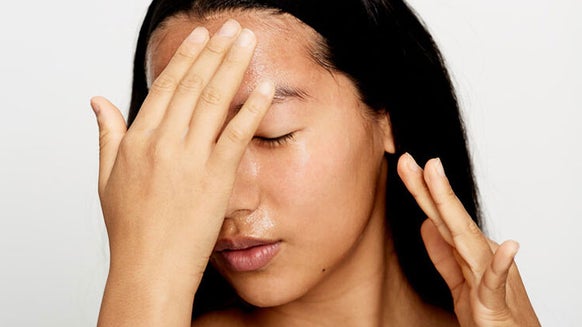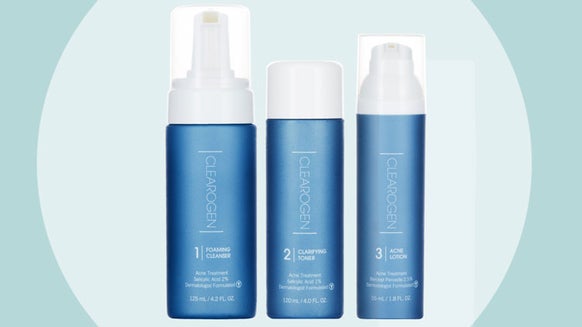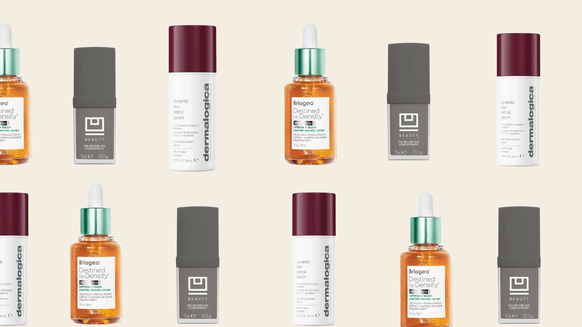If You Care About Your Health, You Should Care About Your Skin—Here’s Why
Experts believe that your skin’s health is directly connected to your overall health. Caring for your skin is a form of self-care, and “Self-care IS healthcare,” is Dr. Ellen Marmur’s
Rituals are valuable to good health. One of the first things you probably do when you wake up each morning is care for your skin. And you most likely do the same every evening. Taking these moments for skin care is just one way to practice self-care.
Your daily skin care rituals are not only opportunities to address the appearance of your skin, but also time to focus on your skin’s health, and in turn, your overall health.
Consider this—while caring for your skin, you likely:
- Scan your reflection in the mirror for changes in your skin, such as discoloration, growths, blemishes, dry patches or inflammation—some of which can signal underlying health problems—and make a mental note to talk to your dermatologist if you have any concerns.
- Use products you’ve researched, careful to avoid unnecessary or harmful ingredients, leading you to also carefully consider the ingredients in your food, supplements, medications and other products you may use.
- Apply sunscreen every morning, actively preventing damage due to the sun’s ultraviolet rays, which can cause sunburn, wrinkles, hyperpigmentation and even cancer.
Every step in your skin care regimen plays a key role in supporting your health. This is because your skin is the largest, and most exposed, organ in your body. Your skin is influenced by its environment and how you treat it—and the health of your skin can influence the internal systems it protects.
How Inflammation in Your Skin Leads to Inflammation in the Body
If your skin is irritated or injured due to scrubbing, use of harsh or excessive products, sun exposure, lack of sleep or other factors, you’re likely to experience inflammation. Inflammation within the skin is connected to chronic inflammation in the body, which may lead to illness.
In fact, a recent study found that when skin is damaged or irritated, inflammation-causing cytokines—small proteins secreted by cells—are released throughout the body and transported via your interstitial fluid, sometimes called the “eleventh organ” of the body. This is the fluid surrounding your cells that carries oxygen and nutrients throughout the body and removes waste products. However, it can also transfer cytokines that contribute to the development of chronic disease.
Simple Skin Care Solutions for Overall Good Health
The good news is that these issues can be addressed with the help of your board-certified dermatologist and an effective, uncomplicated and personalized skin care routine that you develop together. The products you use should be as naturally sourced as possible without sacrificing performance and designed to work with—and optimize—your body’s own dynamic, sophisticated mechanisms of repair and rejuvenation.
Your skin care toolkit should be simple and focused on skin health, not swayed by marketing messages and the latest trends shared on social media. Protecting your skin’s moisture barrier is most important. Experts have found that simply using a barrier repair moisturizing cream may decrease inflammation and reduce the risk of disease.
In addition to using a morning and a nighttime moisturizer, follow these strategies to create an excellent foundation for good skin health:
- Use a gentle cleanser on your face. Avoid over-cleansing your skin with harsh scrubs or facial wipes.
- Apply sunscreen with an SPF of 30 or higher to all exposed skin every morning and throughout the day as needed.
- Have a range of skin care options on hand to address skin changes that arise due to the environment, aging or your lifestyle.
- Avoid harsh products that can lead to damage and inflammation, and talk to your doctor if you need to treat problem areas.
Commit to making your daily skin care routine a time of quality self-care with an eye toward good health. There’s no question that healthy skin is vital to your overall health, and good health is always beautiful.

From the latest hair and makeup trends to the best solutions for your skin issues, we've got all your beauty concerns covered!
Related Posts

Epigenetics: How Skin Care (and Other Lifestyle Choices) Can Affect Your Genes






